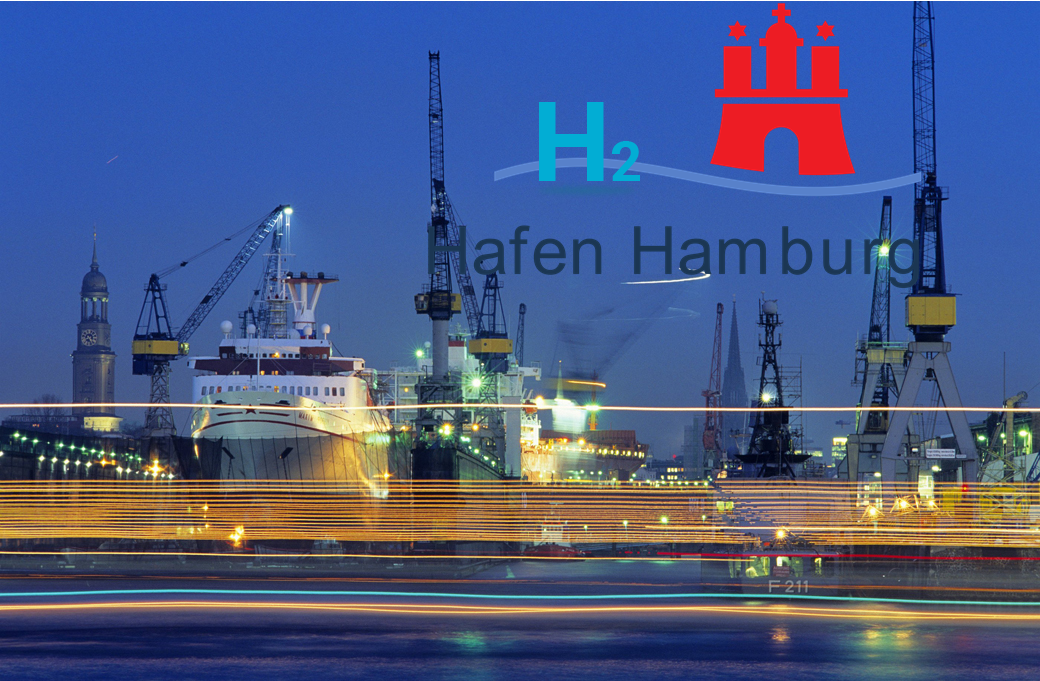
For Michael Westhagemann, Hamburg’s Senator for Economics and Innovations, he is “the key to climate neutrality” and the scientist Michael Fröba is even convinced that without him there will be no energy transition.
We are talking about green hydrogen, the fuel and energy storage of the future. While the EU is funding the hydrogen economy with 470 billion euros and the federal government is working on the “Hydrogen Republic of Germany”, Hamburg is preparing to become the capital of this republic, if not Europe.
The potential is great: hydrogen is the most common chemical element in the universe. It is not only a component of water, but of almost all organic compounds. The availability of hydrogen is almost unlimited, provided there is enough energy available to release it. The problem: Since it only occurs in the form of compounds, it has to be split off from a source material with the help of energy. So far, what is known as gray hydrogen has primarily been obtained – from fossil fuels, especially natural gas. But the future belongs to green hydrogen, which is produced by electrolysis of water. And renewable energies are used here.
This is why northern Germany, with its strong wind power resources, is so important for the “Hydrogen Republic of Germany”. And Hamburg, with its strong infrastructure and port, is at the center. Contrary to the proverbial Hanseatic reluctance, there is no messing about.
Some outstanding examples of what is happening in Hamburg right now:
- In the port, Hamburg Wärme is planning, together with Shell, Vattenfall and Mitsubishi Heavy Industries (MHI), what is currently the world’s largest plant for hydrogen electrolysis with an output of 100 megawatts. It is estimated that the plant could produce two tons of hydrogen per hour. With that, a car could travel 200,000 kilometers.
- In addition, a separate pipeline network is being created. Together with the municipal company Gasnetz Hamburg, Hamburg’s environmental authority is preparing a climate-neutral energy supply for large industrial companies in the port. The “Hamburg Hydrogen Industry Network”, or HH-WIN for short, with a length of 45 kilometers south of the Elbe, is to supply the energy-intensive steel, copper and aluminum industries there with green hydrogen by 2030 at the latest.
- Hamburg has joined forces with four other northern German states (Bremen, Schleswig-Holstein, Mecklenburg-Western Pomerania, Lower Saxony) to form the North German Hydrogen Alliance in order to enable the supply of as many interested customers as possible. Nine key industries will be supplied with hydrogen and at least 500 megawatts will be installed in northern Germany by 2025 – five times the capacity of the world’s largest electrolysis plant. The aim is to build a green hydrogen economy, the effects of which extend beyond the north. The coastal countries score points here with their strong ecosystem, the best location conditions and funding programs. Another plus for the region: top research, Northern Germany is Europe’s think tank for the hydrogen economy. The alliance’s funding is 9 billion euros.
- Hamburg is not only going for hydrogen in the port: The Hamburger Hochbahn, a pioneer among municipal transport companies in the conversion to emission-free drives, will in a first step purchase up to 50 hydrogen buses.
- And of course hydrogen is also an issue in Hamburg in the air: On the one hand, the aircraft manufacturer Airbus based in the Hanseatic city is developing a hydrogen aircraft. On the other hand, Hamburg Airport is investing heavily in the bearer of hope for the energy transition in order to build up an appropriate infrastructure. In the future, the vehicles at the airport will primarily run on hydrogen. Whether the airport will even have its own electrolysis system for production is being examined. After all, the hydrogen planes also have to be refueled.
It is not only the port, airport and companies that make Hamburg so important as a hydrogen location, research is also at the forefront. For example, the Helmholtz Center in neighboring Geesthacht is working on a new type of storage device for hydrogen that could also be used in cars.
For Senator Westhagemann, the 2015 Paris Agreement, in which the signatories spoke out in favor of limiting global warming, acted like a “turbo charger” for green hydrogen. The Paris goals in industry and mobility cannot be achieved in any other way than with hydrogen. The Senate sees the importance of Hamburg and Northern Germany far beyond the “Hydrogen Republic of Germany”. According to Westhagemann’s idea, the coastal region should build a networked infrastructure for all of Northern Europe. The topic emerged from its niche and Hamburg played a decisive role in this. His demand for all stakeholders: “Get faster, use the dynamism, set ambitious goals.” The potential is huge, the fundamentals are broad: “Knowledge, specialists, companies, everything is there in Hamburg.”
Source: City of Hamburg
Read the most up to date Fuel Cell and Hydrogen Industry news at FuelCellsWorks




